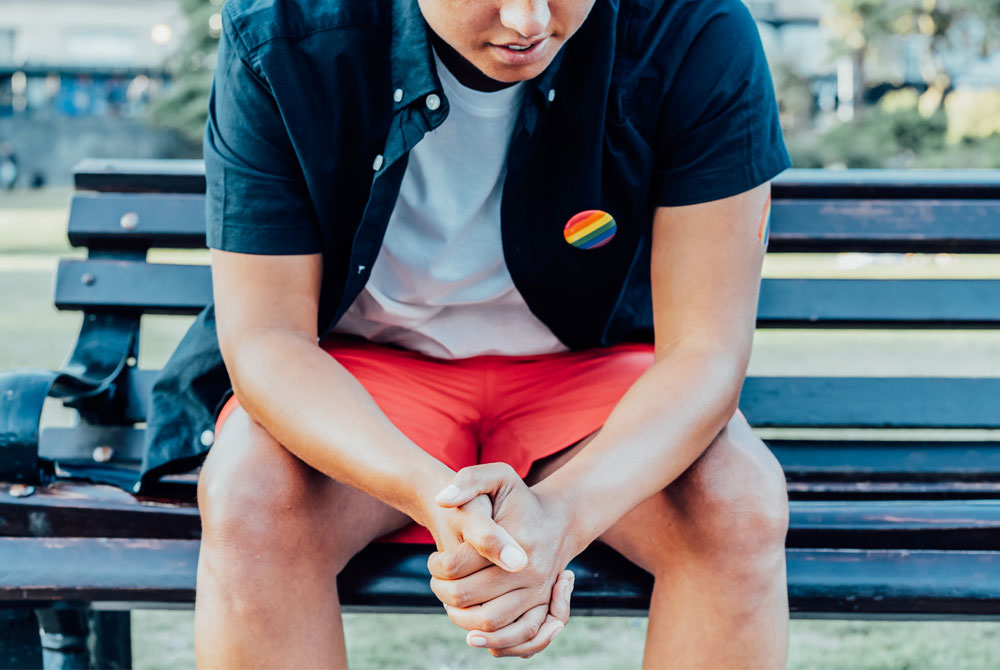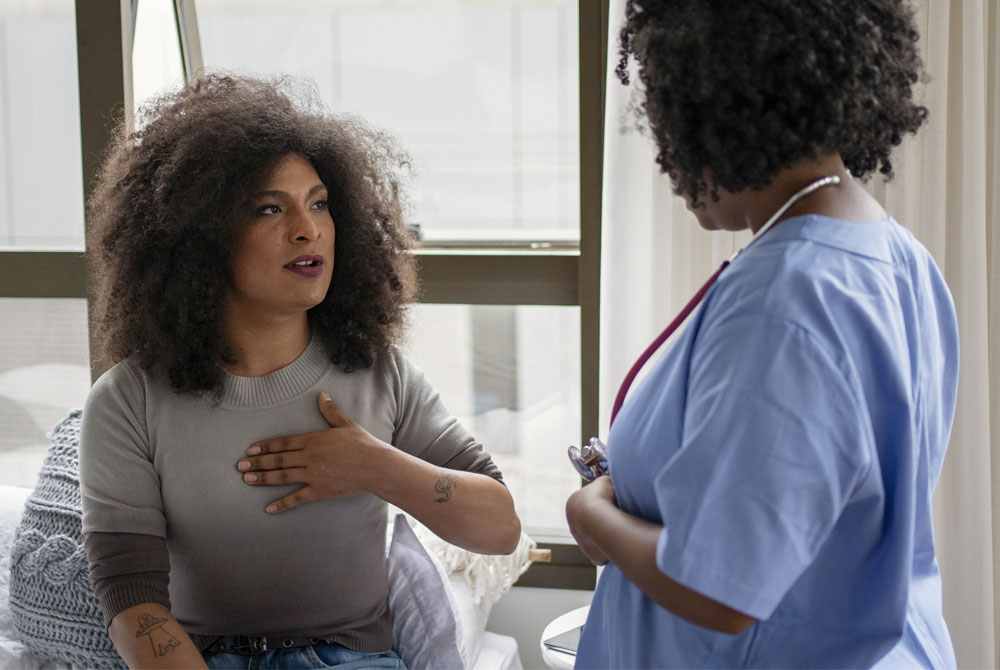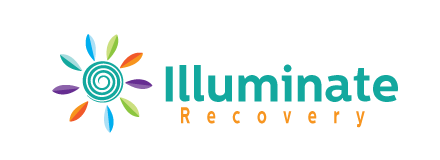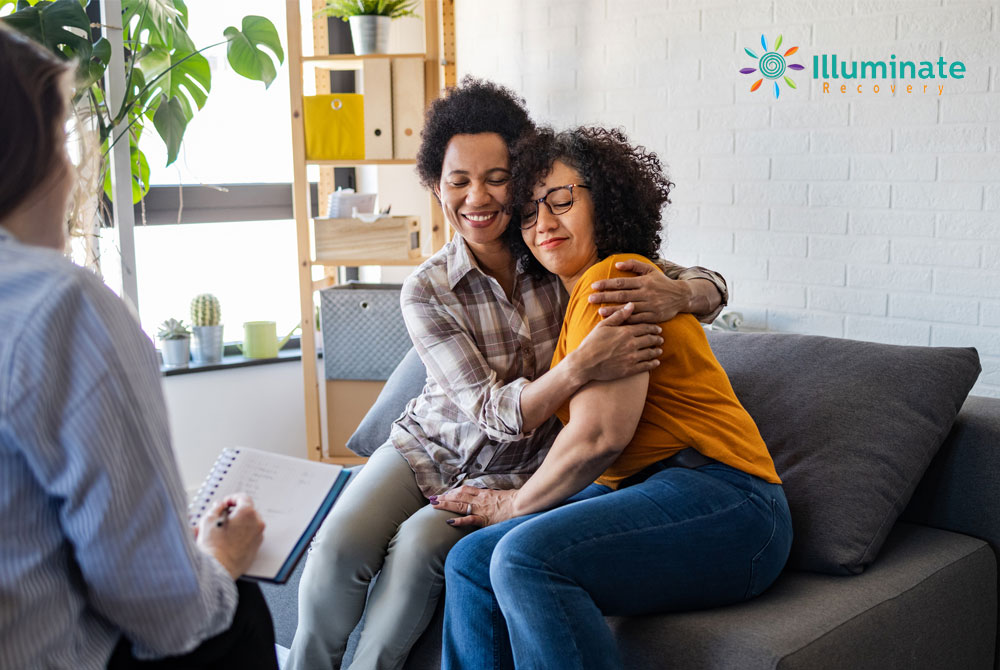For decades, treatment centers for substance use disorder recovery and the practices they use have been modified as new research is conducted and new methods of treatment come to light. However, all types of people experience substance use disorder, and many times, the methods that work for the majority of patients aren’t the right set of practices for others. As science reveals more about SUD, it makes way for more options and more avenues of approach. This enables treatment centers to pursue the healing of more people suffering from this illness.
Overall, researchers, physicians, therapists, counselors, and others have taken great leaps in the improvement of therapy methods and treatment practices that are successful in guiding the majority of people to recovery. However, not all people fit into the same box when it comes to treating any disorder, including SUD. Individuals and even certain groups have different sets of needs and varying treatment methods that work, whether due to personal experiences an individual may have had or social injustices a group of people is affected by. This is the case for many members of the LGBTQ community who experience SUD.
SUD and the LGBTQ Community
While there are few studies that survey substance use among the LGBTQ community in a meaningful magnitude, the ones that do exist show that members of the LGBTQ community are more inclined to experience substance misuse and SUDs than their heterosexual counterparts. One study, in particular, surveyed both heterosexual adults and self-identified “queer” adults who define themselves as bisexual, lesbian, or gay. The survey revealed that twice as many LGBTQ participants as heterosexual men and women use marijuana, opioids, and alcohol. Furthermore, the study showed that LGBTQ patients who enter rehabilitation programs often exhibit more severe cases of SUD than non-LGBTQ individuals.
It is important to understand why this is. Researchers believe that the primary reason for this trend is likely due to the fact that individuals who identify as part of the LGBTQ community face certain stressful social profiling that makes them feel ashamed. The self-regret and shame alone are heavy for many people who are LGBTQ. If members of this community develop SUD, they must then deal with the shame of their substance use, as well.

To make matters worse, individuals who identify with LGBTQ are more likely to be the target of hate crimes, violence, and harassment. This can make members of the community even more susceptible to mental and behavioral health problems, including not only SUD but also depression, anxiety, and suicidal ideation. This fact is exhibited in a study that compares LGBTQ and heterosexual drug users to identify specific characteristics of LGBTQ individuals who have SUD. Members of the LGBTQ community involved in the study were twice as likely to have had mental health treatment than the heterosexual participants, which could mean the rate of mental health problems is higher.
Addiction Recovery for the LGBTQ Community
Both studies cited above present a need for SUD treatment that is tailored to meet the unique needs of the LGBTQ community. Despite this reality, LGBTQ-centered treatment is still lacking in many areas. However, with the spread of awareness and more LGBTQ individuals reaching out for help, more treatment centers, physicians, psychiatrists, and other related parties are beginning to take note that something more is needed to treat the unique needs of these individuals.
The primary goal of recovery and rehab should be to develop treatment programs and facilities that eliminate shame during recovery by tearing down the social biases that society has constructed over hundreds of years. Only then will these individuals be able to heal properly. In order to facilitate this for individuals who are LGBTQ, however, there must first be an understanding of the needs of those members of the LGBTQ community who find they are suffering from an SUD and want help.
Characteristics of Substance Use Among LGBTQ
The above-mentioned study reveals many commonalities within the sample of LGBTQ individuals surveyed that are significantly less prevalent in the heterosexual sample. The primary psychosocial traits noted are listed below. While certainly not every individual who identifies as LGBTQ will share these traits, they do have a higher likelihood of occurring in the LGBTQ community than among the heterosexual subjects surveyed.
- Homelessness
- Legal issues
- Being a victim of domestic violence
- Higher frequency of substance use upon entering treatment
- Substantial visits to the hospital, hospitalization, medical treatments, and emergency room visits, thus, more physical health problems in addition to substance use
The Solution
Now that some potential issues have been identified, there are more doctors, institutions, researchers, and social bodies that are beginning to offer solutions to fill the gaps in LGBTQ-focused treatment for SUD. Treatment options that are tailored specifically to a specific sexual minority are becoming more common, and the LGBTQ community needs more facilities with these programs because they often offer better success rates. Research shows that LGBTQ individuals who go into treatment for SUD have an astonishingly higher success rate of remaining sober after they leave treatment when their program is comprised of same-gender/same-sexual-orientation group members.
Other components that can facilitate increased success of SUD treatment for LGBTQ individuals include:
- LGBTQ facilitators or facilitators who are sensitive to LGBTQ individuals
- Facilitator training to learn sensitivity to LGBTQ individuals
- A space that is welcoming to LGBTQ individuals where they won’t feel threatened, judged, or shamed, with special care taken to exclude elements from the outside world that make them feel shame for their identity
- Educational opportunities for family and friends of rehab participants
- Secure space that protects confidentiality and respects the various stages of sexual identity
- Public education about the need for LGBTQ public policy and protections, as well as the extreme risk of SUD within the LGBTQ community and why the risk is high
- More training for professionals regarding what constitutes cultural competence and the unique and specific needs in treating LGBTQ individuals for SUD
- Further refined research on SUD within the subcultures of LGBTQ instead of one large group
- Outreach to members of the LGBTQ community
- LGBTQ-specific treatment programs that directly address sexual issues
- Treatment addressed from a bio-social-psycho perspective that is shared across the team of treatment professionals
The Importance of Treating Comorbidity
A major need in treating SUD in LGBTQ patients is that health professionals learn to recognize and identify dual diagnoses, or comorbidity, in these patients. This is important for many reasons, one being that the SUD and another underlying issue are closely related. In these cases, treating both is essential because without addressing the cause of the SUD, there may be treatment, but there is no healing.
It is also important to assess the unique needs of this population when it comes to mental health treatment. For example, gay and bisexual men and women are more likely to experience psychiatric issues such as depression than heterosexual men and women.
Some other common conditions that accompany SUD patients include the following:
- Mental health concerns such as anxiety, depression, or suicidal ideation
- High stress
- Sexual dysfunction
- Sexual abuse
- Sexual assault
- Eating disorders
Treatment Approaches for LGBTQ Individuals Suffering from SUD

By understanding the root causes of SUD within this demographic, it becomes easier to determine approaches that will work best in treatment. Therefore, due to the similar nature of the root cause of SUD in many LGBTQ members, some methods of therapy have had better success with certain subgroups of the LGBTQ community.
For instance, bisexual and gay men have been shown to respond more favorably to the following commonly used therapy methods:
- Social support therapy
- Motivational interviewing
- Cognitive behavioral therapy (CBT)
- Medication-assisted therapy
- Contingency management
SUD Treatment Options for LGBTQ
Members of the LGBTQ community have historically been more hesitant to enter treatment for SUD because they may view it as another opportunity to be discriminated against or treated differently. Unfortunately, these are often the very reasons SUDs in LGBTQ individuals began. Individuals also may have felt that counselors, therapists, and other group members would not be able to relate to their plight or that homophobic attitudes and remarks would be made at their expense.
These things may have very well happened in the past, which can make seeking treatment a daunting task. With the progression of LGBTQ awareness, however, LGBTQ treatment centers are finally a reality.
Illuminate Recovery’s Approach to LGBTQ SUD Treatment and Recovery

Illuminate Recovery understands how difficult it is to make the decision to get help for SUD, especially for those members of the LGBTQ community. Our mission is “Lighting the Path to Sobriety” for everyone. When this means adapting to meet the needs of our patients, we adapt, including adaptations for those in the LGBTQ community.
We embrace our patients who identify as LGBTQ and have taken care to develop a program free of discrimination and bigotry. In addition, we take into consideration the needs of our LGBTQ clients and accommodate those needs because we know how important they are to recovery. Here are a few aspects of our programs designed to help members of the LGBTQ community.
12-Step Meetings
Illuminate Recovery hosts 12-step meetings tailored to the LGBTQ community. Traditional Alcoholics Anonymous meetings are a crucial component of many people’s successful journey to recovery, but a religious-centered organization often tends to feel unwelcoming for LGBTQ participants. Seeing the need for 12-step meetings that don’t make participants who identify with an LGBTQ demographic feel judged or discriminated against, Illuminate Recovery felt it was important to make accommodations. Now, our clients who didn’t feel traditional 12-step meetings were a safe and welcoming place that facilitated recovery can reap the benefits of specialized support groups in a secure and unintimidating environment.
Safe and Sober Living Environments
One of the most significant problems for LGBTQ individuals with SUD is that most places where acceptance and social opportunities to relate to others who understand them are also places that encourage drinking. This is not conducive to recovery.
Illuminate Recovery understands the need for environments that are understanding, receptive, and empathetic to LGBTQ members. Illuminate Recovery’s The Sober Experience sober living facilities offer a place where clients can receive guidance and support any time of the day or night from the trained and compassionate Illuminate Recovery staff. In fact, our staff are dedicated to creating and maintaining safe, sober environments for all Illuminate Recovery clients.
Group Therapy
The Illuminate Recovery program has many unique components that lend well to LGBTQ members in recovery. For example, group therapy offers a place where clients can make new relationships and forge a supportive and accepting support system. Here, they build relationships that last long after therapy ends, providing them with a constant source of support and encouragement to help them maintain long-term sobriety. Illuminate Recovery clients find group therapy brings hope in getting to know others they identify with and seeing them make positive choices in their lives despite the adversities they face.
Group therapy also allows for the awareness of a broad perspective of viewpoints, the development of communication skills, and the ability to problem-solve when interacting with others in new ways. Therapeutic group activities provide the opportunity for clients to practice the therapy methods they learn, like cognitive behavioral therapy and social support therapy, which is successful in LGBTQ-centered SUD treatment. Through group therapy work, clients learn to facilitate respect, honesty, and assertiveness.

Group therapy provides a microcosm of the outside world where participants can learn to accept each other and provide support to others. At the same time, they can learn to relate to each other. When everyone realizes their own self-worth, self-esteem can improve, facilitating recovery. Everyone begins to see that each and every individual has something valuable to offer, whether it be within a support group, a family unit, a workplace, or a circle of friends.
Get Help
If you or someone you know in the LGBTQ community is suffering from SUD and has had a hard time finding a treatment program where they feel like they are accepted as they are, Illuminate Recovery can change the story. Contact Illuminate Recovery today. You can discuss your needs with our compassionate staff, request program information, or learn more about the LGBTQ services available to our clients.
Sources :
- “Gay in AA: A Look at LGBT Groups in Alcoholics Anonymous” by Harris House St. Louis: Website: Harris House St. Louis. (2023, September 8). Gay in AA: A Look at LGBT Groups in Alcoholics Anonymous. Retrieved from https://harrishousestl.org/gay-in-aa-a-look-at-lgbt-groups-in-alcoholics-anonymous/
- “LGBTQ alcoholics in A.A.” by Alcoholics Anonymous World Services, Inc.: PDF Document: Alcoholics Anonymous World Services, Inc. (n.d.). LGBTQ Alcoholics in A.A. (P-32). Retrieved from https://www.aa.org/sites/default/files/literature/assets/p-32_LGBTQalcoholicsinAA.pdf
- “LGBT Voices” by Alcoholics Anonymous Great Britain:PDF Document: Alcoholics Anonymous Great Britain. (n.d.). LGBT Voices. Retrieved from https://www.alcoholics-anonymous.org.uk/download/1/Library/Documents/Literature%20Downloads/3268%20LGBT%20Voices.pdf
- Gay & Sober MEETINGS” by Gay and Sober: Website: Gay and Sober. (n.d.). Gay & Sober MEETINGS. Retrieved from https://www.gayandsober.org/meetings
- “Alcohol, Drug, and Other Rehab Centers in St. Louis, MO” by Help.org: Website: Help.org. (n.d.). Alcohol, Drug, and Other Rehab Centers in St. Louis, MO. Retrieved from https://www.help.org/drug-and-alcohol-rehab-centers-in-st-louis-mo/
- “Integrating Sex and Gender Informed Evidence Into Your…” by Centre for Excellence in Women’s Health: PDF Document: Centre for Excellence in Women’s Health. (2022). Integrating Sex and Gender Informed Evidence Into Your… (CEWH-02-IGH-Handbook-Web). Retrieved from https://cewh.ca/wp-content/uploads/2022/01/CEWH-02-IGH-Handbook-Web.pdf
- “GaL-AA – Gays and Lesbians in Alcoholics Anonymous” by GaL-AA: Website: GaL-AA. (n.d.). GaL-AA – Gays and Lesbians in Alcoholics Anonymous. Retrieved from https://gal-aa.org/
- National Institute on Drug Abuse. (2017, September 5). Substance Use and SUDs in LGBTQ* Populations. National Institute on Drug Abuse. https://nida.nih.gov/research-topics/substance-use-suds-in-lgbtq-populations

Having been on both sides of active addition, both the person using, and the person affected by a loved one using drugs and alcohol, Lucas has been involved in recovery since 2009. He has been working in the treatment industry since 2013. Using his personal experience and wealth of knowledge learned from professional development and immersion in the recovery field, he has spoken with thousands of families and helped hundreds of people attain long-term sobriety. In 2020, the opportunity presented to join in and start Illuminate Recovery. Understanding the importance of personalized treatment plans and the complex nature between substance abuse and co-occurring disorders, has helped Illuminate Recovery build a strong curriculum and a phenomenal staff. Illuminate Recovery now has a medical doctor who is board certified in addiction medicine and a psychiatric medical doctor who works side by side with independently licensed therapists to provide compassionate and effective treatment.

